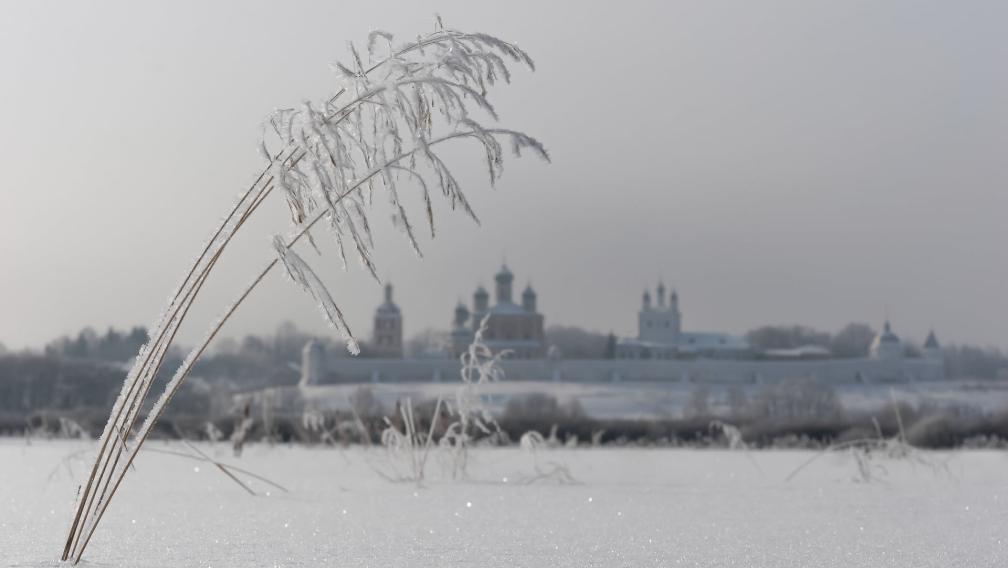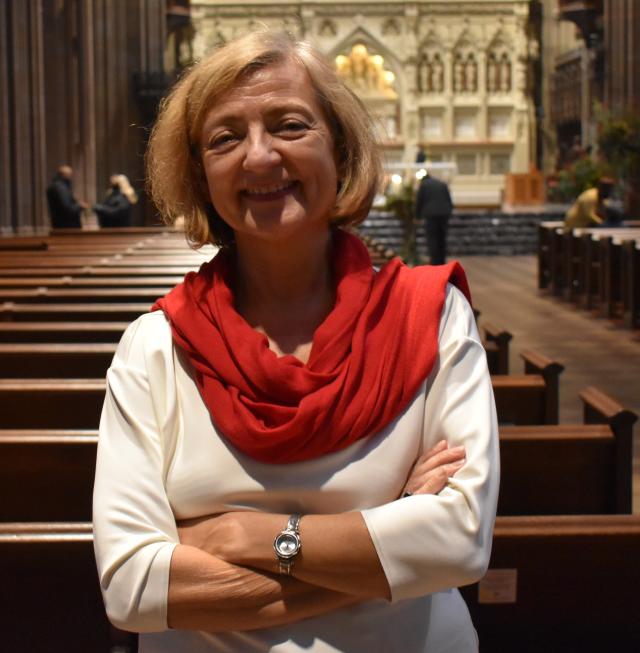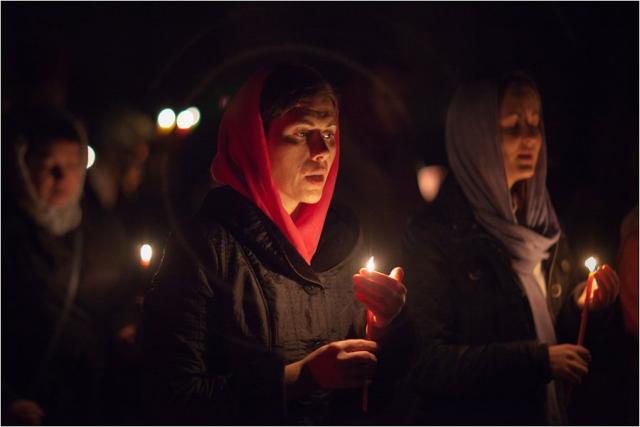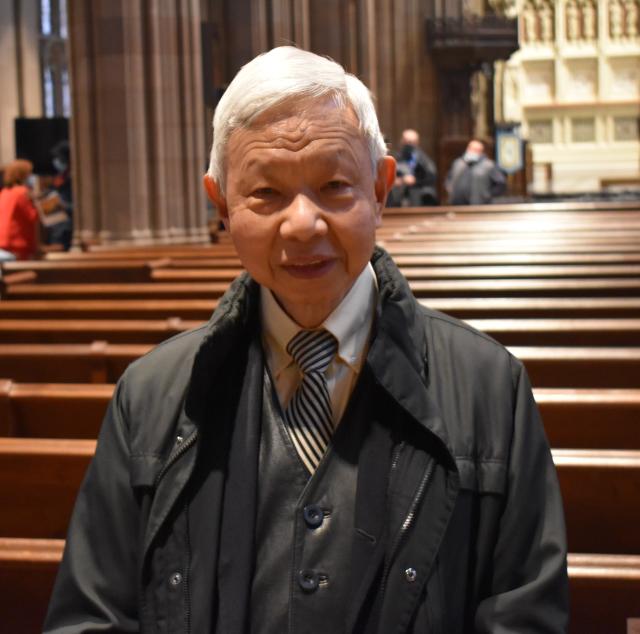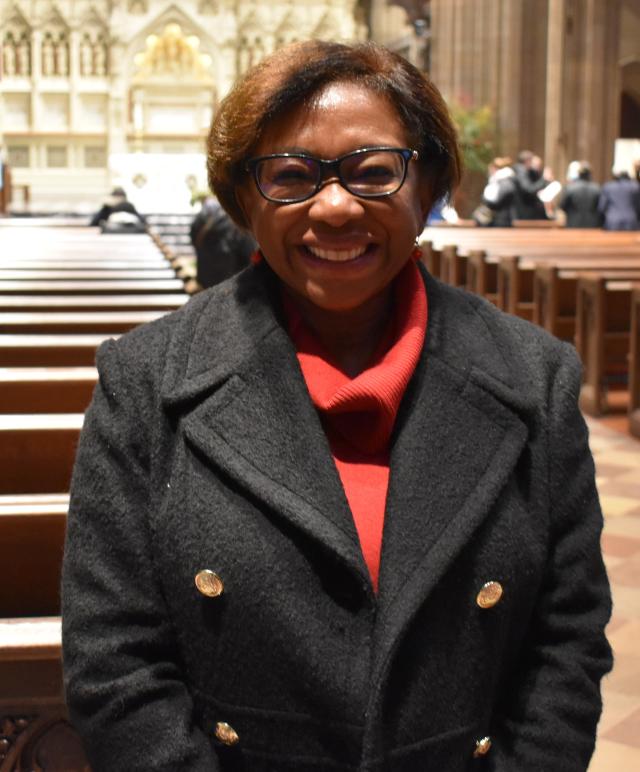The parish of Trinity Church Wall Street includes many congregation members who grew up in other countries. Three parishioners recently shared their childhood memories of Christmas celebrations in other places.
Russian Orthodox Christmas is celebrated on January 7, because the Russian Church lives according to the Julian calendar. A stern 40-day fast precedes Christmas Eve; the Christians must refuse meat, milk, butter, and eggs. People pray and think about God, eternal life, and heaven.
The Christmas service usually begins on January 6 at 11pm, continues five to six hours, and ends before dawn. The first food at the end of the fast is eaten when the first star is seen in the night sky.
Russian Christmas is a very joyful holiday, says Maria Tarasenko Santiago. "We like to perform the snowball battles all day and build snow forts. [We] see the steam rising from the mouth, cheeks are red in the frosty air; the hoarfrost is on the hair, eyebrows, and lashes. It’s extremely pleasing to return to childhood, tumbling in the snow with children and grandchildren."
In the evening the family gathers around the big table full of food. At the end of the eating, families like to drink hot tea with honey, different jam, cookies, and sweet pirogues. Using a Russian teapot, a big, shining samovar is one of the lovely Old Russian symbols. Marina says she and her family like to sing songs at the table, along with conversation and eating in good company.
"China is a traditionally Buddhist country, and we only celebrate Christmas inside the church," shared Sam Fung. "[As a child], we were allowed to go to the parishioners’ homes to sing carols. Then after 1956, everything changed; no more [practice of] religions. They started restricting religion, all religion. No more freedom for religions. It’s very secret now. Only a few churches are allowed to open, in the big cities. In the countryside, no more church."
"I lived for a long time in Hong Kong. Hong Kong was different because it was colonized by the British so everything is very commercialized," Sam added. "They’re even more commercialized than we are here in the United States. So at Christmas time, they celebrate. They go to church, they go to eat, enjoying the holiday, and the church is very active also."
The period of Advent, Christmas, and Epiphany is an exceptional time all over the Christian world and, in the Dominican Republic, Oliva George says, "it seemed the festivities would start in October and continue throughout January!"
In the Dominican Republic, Christmas Eve is referred to as La Noche Buena, literally translated as the Good Night. Oliva continues, "I have vivid memories of my family celebrating La Noche Buena. La Noche Buena is the biggest (Christian) feast day of the year. It is a family fun-filled day from morning through midnight straight into Christmas Day."
In terms of the menu, Oliva says, "Food abounds, and the menu usually consists of cerdo asado (roast pork), pasteles en hojas (banana leaves filled with meat or chicken, yum!), habichuelas con dulce (sweet stewed beans) among many other tasty items." On La Noche Buena families share gifts, but that is secondary to the gifts exchanged on January 6. "I can especially recall the feelings of love, strong sense of family and unity, and the hope and excitement in the coming of baby Jesus, continuing until the family spruced-up and gathered to attend midnight service," she added.
The holiday spirit extends for 12 days as families prepare for the visit from the Magi on the feast of Epiphany, also known as El Día de los Reyes. As a child, Oliva was told to leave necessities for the kings and their camels: cigarros (cigars) for the kings, grass for the camels, and water for both. She also had to go to sleep early, no later than 7pm, and in the morning, the cigarros, grass, and water were replaced with regalos in the shape of beautiful dolls and toys–much to her delight!
"Years after, when my mom and I no longer fully participated in all of La Noche Buena or El Día de los Reyes festivities," says Oliva, "we still faithfully attended Trinity’s Christmas and Epiphany services. Upon returning home, we drank eggnog, listened to carols, and stayed up past midnight to open our gifts, and we would relive the Dominican Republic memories, bringing us warmth and joy. Whether we were participating in D.R. or U.S. traditions, we were always filled with gratitude for God’s love, God’s only begotten Son, and the hope of everlasting life. "
